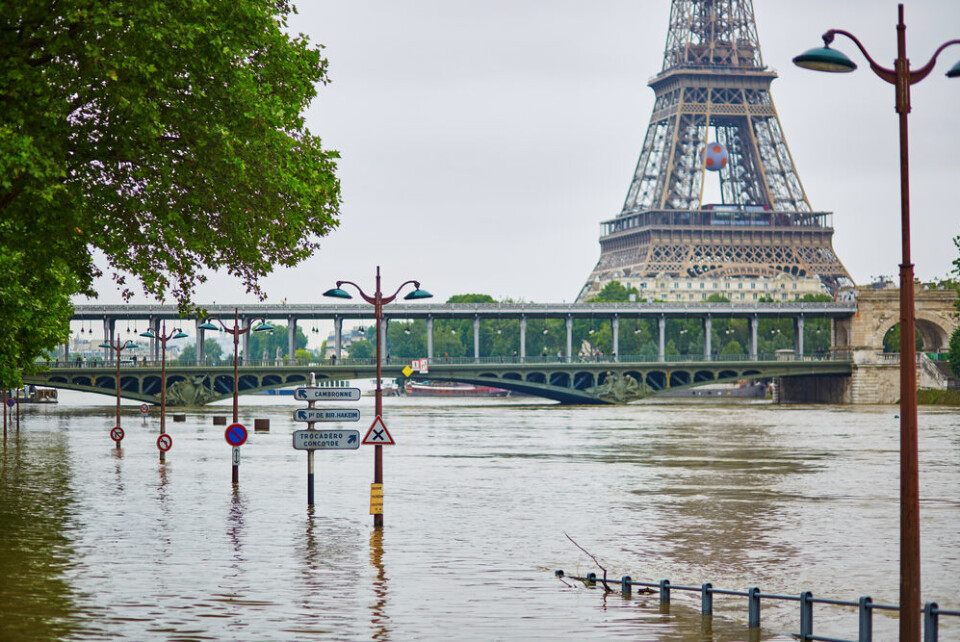-
Many parcel collection points in France are overwhelmed as Christmas approaches
Heavy customer traffic leaves some struggling to cope
-
Veggie burgers and plant-based sausages: French farmers and consumers react to name ruling delay
The EU failed to reach final agreement to draft rules governing plant-based naming
-
Warnings issued over connecting to public WiFi networks in France
Lack of encryption and risk of connecting to ‘fake networks’ leave users at risk of hacking attempts
Online map shows which French cities may be submerged by sea in future
The tool calculates the effects of climate change on the environment and shows areas of cities such as Calais, Dunkirk, Bordeaux and Nice under water

An online interactive map shows how the world could be affected by climate change and rising sea levels in the coming centuries, with cities in France such as Calais, Dunkirk and Bordeaux impacted, as well as the French Riviera in the southeast.
The map has been created by Climate Central, a news organisation that analyses and reports on climate science. It is based on peer-reviewed scientific papers and uses large datasets to create the projections.
It features various options for assessing the impact of climate change, including being able to see how water levels will rise if global temperatures are kept to an increase of just 1.5C since pre-industrial levels, compared to an increase of 4C.
You can view the interactive map here. You can click 'choose map' to select a map calibrated by temperature levels so as to see the effects of a certain rise in temperature above pre-industrial levels by 2100, or 'warming choices' for outcomes hundreds of years from now if the temperature rise is at a certain level.
The 2015 Paris Agreement, a legally binding international treaty that France is a signatory of, has set the target of limiting global warming to 2C, and preferably 1.5C, above pre-industrial levels.
Climate Central’s warming choices map shows several districts of Bordeaux falling under sea levels if temperatures increase by 3C above pre-industrial levels in the very long-term. The Place des Quinconces, for example, would be almost largely submerged.
Further south, Anglet (Nouvelle-Aquitaine) would also be partially submerged, with the Cavaliers beach falling under water.
The Côte d'Azur would also be hard hit, with the city’s airport shown, surprisingly, as partly submerged in the long-term future, even at 1C (less than today, which is 1.1C) and almost entirely covered at 2C.
Other popular towns and cities in the area, such as Cannes and Antibes and the principality of Monaco will also be impacted by rising sea levels.
In the north, virtually all of Calais and Dunkirk will fall under the sea even with temperatures increasing by just 1.5C above pre-industrial levels, the maps show.
The timeframe for when these dramatic changes could take place remains vague, with Climate Central saying that “diverse research indicates that these sea levels could be realised between 200 and 2,000 years from now.”
Benjamin Strauss, president and CEO of Climate Central, has recently co-authored a paper titled 'Unprecedented threats to cities from multi-century sea level rise’.
He said that if the earth warms by just half a degree more, 200 million more people globally will be affected by floods, with Asia the most affected.
“The current concentration of CO2 is more than 50% greater than it was in 1800, and the average temperature of the Earth has increased by 1.1C.”
“This is enough to raise the sea level by almost two metres, whether it takes two centuries or ten centuries,” he said.
The Climate Central map also allows users to see how countries will be affected by looking at sea level changes. For example, an increase of two metres in sea levels would see large swatches of France’s west coast around La Rochelle underwater.
Mr Strauss’ new paper, published in the form of an accepted manuscript on October 11, comes just ahead of COP26, the United Nations’ climate change conference, which will be held in Glasgow (UK) between October 31 and November 12.
Related stories:
Are extreme weather alerts becoming more common in France?
French court orders government to honour its climate promises
Artist’s huge tap work on show in Paris to highlight plastic waste
























